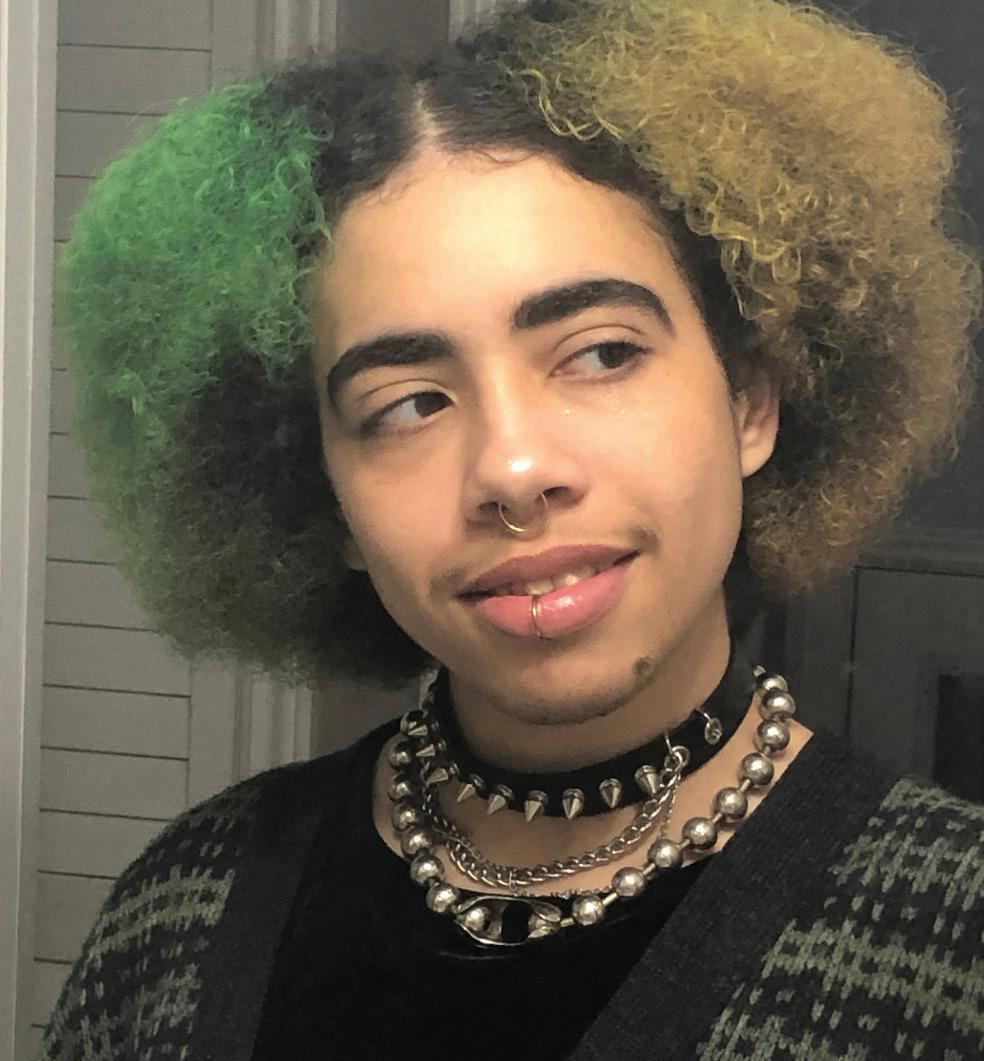
3 minute read
PROFILE IN YOUTH: RIVEN
Profile In Youth: Riven Thorne Meet the youth advocate and peer harm reduction worker who’s helping to make the world a better place By Jumol Royes
There are many young people working hard to make a difference in their communities, but oftentimes they don’t receive the recognition they rightly deserve. We’re here to change that. The second in our series of youth profiles shines a spotlight on Riven Thorne. Thorne is a Toronto-based transgender student, youth advocate and peer harm reduction worker who works with drug and safer sex education for youth and mental health service providers. They are committed to cultivating more compassionate and inclusive communities and advancing issues around equity and social justice. What do you want people to know about your lived reality as a transgender person of colour? I want people to understand that while these labels don’t construct the entirety of who I am, they are labels that I (and others who may have similar experiences) am not given the liberty of existing outside of in society right now. I want people to understand that one person can never represent an entire community, and to be allied to marginalized communities is to not expect us, as individuals, to represent a collective. People with intersecting socially marginalized identities are so often reduced to these identities and nothing else; this is a weight that’s always on our shoulders. It’s important to know that sometimes, the best support we can be given is to be allowed to live outside of our marginalized experiences. To be allowed to live outside the reality of oppression is extremely rare in this society where I (and others with similar experiences) am forced to think about how my identity impacts my day-to-day survival and quality of life. As a peer harm reduction worker, you have conversations with young people about drugs and safer sex. What’s their main issue of concern? For the youth I talk to and work with, the main issue right now is accessing accurate information. It’s my experience that with so many fear tactics having come out of government and school programs, youth just don’t trust those sources for their drug and safer sex information anymore, which makes sense, but the alternatives aren’t always better. It’s easy to find information online that’s inaccurate – sometimes dangerously so – surrounding subjects like drug use. We’ve been focusing more content lately on helping young people identify accurate online sources (e.g., how to find out where a study comes from, who may have paid for it, and why that background may change the amount of trust we put in the information). Young people want to be as safe as they can be, even in their explorative experiences with things that are generally seen as risky, like drugs and sex. Giving them the facts, which are inherently neutral, is how we empower them to make the best decisions for themselves. What’s your advice for youth who want to be advocates and allies for change? Share your opinions! I didn’t understand that my opinions were radical until I shared them and was connected to other advocates with similar ways of thinking. I was able to find people I could safely socialize with once I started being open about my identity and my views, a safe group I’d never had before. Most importantly, I was able to understand my worldview as a work in progress once I started sharing with others who had different opinions, or more well-thought-out opinions than mine.
Commitment to growth is imperative to advocacy and ally work, and being able to share your thoughts, hear a valid critique, and form a new thought based on that critique is a harder-than-it-seems first step to this type of work.
Name one thing we can all choose to do today to make the world a better place. Express love to your community actively, whatever that looks like for you. Tell your best friend how much they mean to you and how valuable they are in your life. Tell your family members that you are grateful for them. We live in a society where love is being treated more and more as capital; instead, express your love for free, no strings attached.
Follow Riven Thorne on their personal Instagram account @stonefruitbaby.
Peace Tea proudly supports inclusivity, diversity & love
“SICKENING (sick· en· ing) Something that is fabulous, over the top, fi erce, the “T”, eating it, fl awless, frightening, nervous talent, etc.
Girl, have you seen Mint Media’s last campaign? It was as sickening as Rosalía’s Grammy performance!
LGBTQ2+ MARKETING









